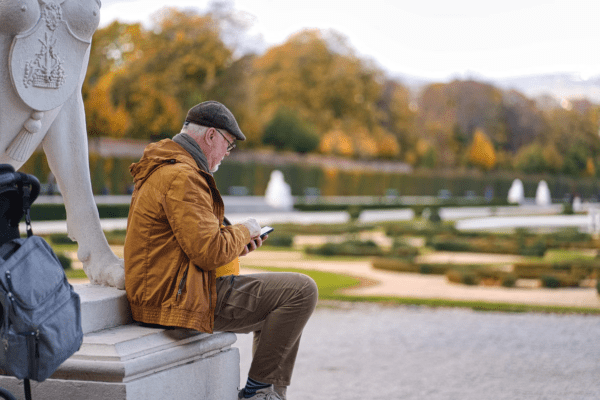
How to Cultivate Activity and Purpose in Retirement

Retirement is supposed to give you a chance to enjoy life without the stress and strain of work. You’ve worked hard, may have raised a family, and are finally ready to put yourself first.
However, you may struggle to find purposeful pursuits once you enter your golden years. This is entirely normal. Many people struggle to adapt to retired life and Age U.K. reports that 6 in 10 people over 65 have experienced anxiety and/or depression at some point.
Getting active in later life can help you discover your post-work purpose. Exercise classes and sports societies give you a chance to meet like-minded people and may help you fight off age-related illnesses. Even casual events, like book clubs and art classes, can help you stay sharp as you enter later life.
Purpose in Retirement
Finding your purpose as a retiree can be daunting. You’ve likely followed a clear routine for the last few decades and may be nervous about the prospect of change. Fortunately, retirement doesn’t mean that you have to abandon your routine or spend hours alone in isolation. Instead, being retired simply means that you can spend more of your free time pursuing projects that are meaningful to you.
Find purpose in retirement by reconnecting with old friends and family members that you haven’t seen for a while. Reigniting your social life can improve your physical health, too, as folks who socialize often usually have higher mobility. Connecting with loved ones can also stave off cognitive decline by brightening up your day-to-day life.
Retirement is also the perfect time to pursue your hobbies. You may have struggled to squeeze in art classes and writing during your career, but you now have plenty of time to build your skills. This can be particularly rewarding in retirement, as self-improvement gives you a clear sense of purpose. Some hobbies may even turn into temporary employment, as libraries and art centres are always looking for experienced staff or volunteers.
Travel
No one can tell you how to spend your time in retirement. While this may be intimidating at first, you will likely find the freedom refreshing — particularly if you have a passion for travel. You don’t have to book off holiday before planning a trip and can spend as long as you want lounging on the beach.
Travel can be deeply rewarding, but it’s important to remember that you have different needs in later life. You should reduce travel-related injuries by making a few timely investments in carriers and luggage dollies before you hit the road. Ask for help if you suspect that your luggage is a little too heavy to lift, as a strain can derail your entire itinerary.
Consider looking for destinations that are retirement-friendly when planning a trip. Beaches and resorts may be perfect in the early summer but will be overcrowded when children go on their holidays. Remember that there’s nothing wrong with a staycation, either. Walking holidays to the South of Wales, Yorkshire Dales, or the Peak District can help you learn about local history and will boost your health and fitness. Just remember to get travel insurance to protect you against slips or falls.
Health and Fitness
If you had a busy work life, it may have been some time since you last stepped into a gym or laced up your running shoes. However, retirement is the perfect time to start taking up health-boosting behaviours. Looking after your health in retirement can even stave off common age-related illnesses like Alzheimer’s, heart disease, and arthritis.
If you’re struggling to find your passion for fitness, consider looking for activities that help you socialize. The folks you meet at sports societies and group exercise classes can help you form an exercise habit that lasts. Consider, for example, activities like:
● Spin classes
● Golf societies
● Walking and hiking groups
● Yoga and pilates
● Swimming groups
These are low-impact activities that are unlikely to cause injury. You’ll also improve your cardiovascular health while walking the course, cycling in a studio, or swimming in an outdoor lido.
Giving Back
Retirement means that you no longer have to report to a boss or complete tasks that bore you. However, it doesn’t necessarily mean that you have to give up your passion for helping others. Instead, you can focus more of your time and effort on volunteer opportunities that bring you a sense of fulfilment.
You can find rewarding volunteer opportunities through your local council or you can register with groups like the Retired and Senior Volunteer Programme. You’ll find plenty of rewarding opportunities, like:
● Mentor schemes
● Handyperson Work
● Stitching and knitting
● Driving schemes
These volunteer opportunities help you feel valued and can reignite your sense of purpose. You’ll pick up important skills when working with new people, too. This can improve your social skills, protect your mental health, and strengthen your support system.
Conclusion
Retirement can be scary if you’re used to a clear routine. However, you can use your newfound free time to cultivate activity and purpose in retirement. This can significantly improve your health and well-being while strengthening your support systems. Just remember to utilize accommodations and accessibility tools to avoid injuries and accidents.












































